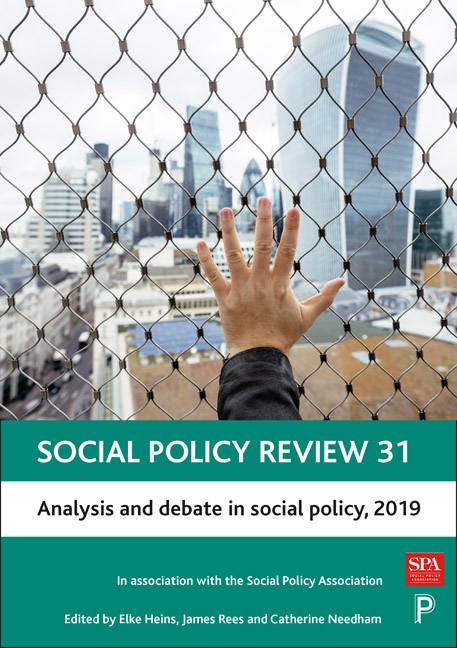11 - Family as a socio-economic actor in the political economy of welfare
Published online by Cambridge University Press: 30 April 2022
Summary
Introduction
Decades of market-driven welfare reforms have resulted in ‘the reconstitution of the nature of social welfare’, marked by ‘a shift towards more market-based, privatised and individualised forms of social reproduction’ (Roberts, 2014: 235). This is increasingly manifested in what Smith and Rochovska (2007: 1175) described as the ‘domestication of neo-liberalism’, a process in which households ‘do not necessarily resist neo-liberalism (although they may under certain circumstances) but [make] attempts – sometimes unsuccessful ones – to find ways to make material life more tolerable’. The process of domesticating neoliberalism coincides with the extensive neoliberal restructuring of the welfare state itself that, especially after the 2008 financial crisis, has led to the institutionalisation of austerity in nearly all advanced welfare-capitalist states (Streeck 2013; Hermann, 2014; Farnsworth and Irving, 2015; Kennett, 2017; Dukelow and Kennett, 2018; Papadopoulos and Roumpakis, 2018). Under conditions of continuing welfare cuts, reductions in benefit entitlements, the curtailment of socio-economic rights, stagnating wages (Vaughan-Whitehead et al, 2016), increasing inequalities (Milanovich, 2016) and ballooning household debt (eg Papadopoulos and Roumpakis, 2013, 2015, 2017a; Hiilamo, 2018), the vast majority of households and families are now expected to act even more strategically as collective socio-economic actors to absorb the ever-increasing social risks and costs associated with their social reproduction in the era of financialised capitalism (Dixon, 2014).
For at least two decades, the majority of comparative social policy literature had focused on the role that the family plays as a provider of care, its politics and its implications for gender relations and especially women (eg Lewis, 1992; Saraceno, 2004; Millar, 2016; Chau et al, 2017; Daly and Ferragina, 2018). However, with few exceptions (see Wheelock and Baines, 1998; Wheelock et al, 2003), less attention has been paid to the institutional conditions that enable families as collectivities to generate socio-economic security and independence for its members vis-a-vis both the market and the state. In this chapter we argue that, given the scale of change under the neoliberal reconstitution of social welfare, it is imperative to expand our theoretical understanding of families as socio-economic actors to encompass strategies and practices that extend beyond care provision.
- Type
- Chapter
- Information
- Social Policy Review 31Analysis and Debate in Social Policy, 2019, pp. 243 - 266Publisher: Bristol University PressPrint publication year: 2019
- 1
- Cited by



